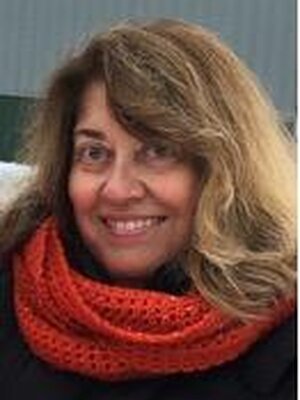
How would you describe your background? (I.E. where you are from? How did you first get interested in your area of research? Etc.)
At the end of high school, I was trying to choose between psychology and chemistry. What convinced me to go to psychology was my aunt, who was a neurologist. I was having conversations with her and realized I really liked it. I started psychology as an undergraduate with an interest in physiology. From the get-go I started doing what was then called biopsychology, now it’s called cognitive neuroscience. At the end of my undergraduate studies, I applied for grad school at UIUC and came here as a graduate student. My graduate education is from Illinois. Then I left for 10 years. I had a position as a research scientist at New York State Psychiatric Institute for four years, then I got a tenure track position at the University of Missouri, in Columbia. Illinois out of the blue called me asking whether I would be interested in coming back as faculty, so I came back here in 2001.
What is your favorite part of the research process? (Learning new things you didn't expect, presenting the information at conferences, the writing process, etc.)
The research! I really like to be able to think of questions and the best ways to get answers, and just having the freedom to explore data the way I want without being constrained. If you work for a company, you might do research but you will be much more restrained with what you can and cannot ask. If a company’s goals change then you just have to go with it. Academia pays less and is probably more hours, but it gives you an infinite amount of freedom, which is wonderful.
What made the University of Illinois a good place to conduct your research?
The Beckman Institute. My research is really at the intersection between the neuroscience of aging, engineering, and health. There are very few places where you can have colleagues under the same roof that do all of these things. I was tenured at the University of Missouri, and trying to decide whether to remain there, but when it became clear what the opportunity was to be here, especially at the Beckman Institute, it was a big motivator, because it really allowed me to do things that are hard to do in other places.
You recently won an award for distinguished work in psychophysiology, how has that inspired you?
I was surprised! I didn't expect it, I am very thrilled to have it. It means a lot to have a Society that you’ve been part of since graduate school honor you that way. It’s humbling in some ways because it’s not like you expect it, at least I didn't. At the same time, it pushes me to continue what I am doing with renewed enthusiasm. In that sense it is inspirational.
Can you describe a moment where you failed?
Oh, there are lots of those! You fail because sometimes you have a hypothesis and the hypothesis doesn't work. In some ways, those are the best moments. You aren't happy that things didn't work out exactly as you thought, but those are the moments that make you think and you realize “oh, so I was wrong, let me review my model and my data, what it is telling me that I didn’t get before.” I think that's what's great about science, you need to see what the data tells you and realize that you can have prior ideas, and that’s wonderful, and you should go test them, but sometimes you’re just plain wrong and theories are meant to be discarded.
As you go along with your research you realize that this may not be the way things work, so you do something else, or you change methods, because that's the other thing, sometimes methods are limited. You’re looking for the penny under the light, but the penny might be miles away and if you don't get a different instrument you're never going to find it. I think that methodology is also something I have spent a lot of time on, figuring out what is the best way for me to ask a given question. Often times it requires a change of methodology to ask the appropriate questions. Sometimes you’re not wrong because the hypothesis is wrong, but because you’re looking at it through the wrong lens.
What do you do in your spare time?
Oh, I don't have much of that! I have twin granddaughters who I love to pieces, they are 4 and a half. I love to cook and grow orchids. I also love photography and traveling. I travel a lot for work but I often try to squeeze in a few days so I can see places. I have been to lots of places by now, but my favorite is Italy because I am Italian. So, I go to Italy once a year or more because I have family there.
If someone in the program, a student or a colleague, needed to refer to you but did not know your name, how would you prefer for them to refer to you?
Just Monica is fine.